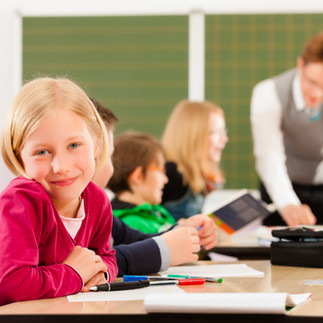Should We Tell Children When We've Made a Mistake?
- Mel Lane
- Oct 5, 2023
- 3 min read
When a child in our class makes a mistake, we treat them with compassion and understanding, helping them to learn and move on, but how often do we treat ourselves in the same way? How about normalising learning from mistakes, by admitting (out loud) our own?

Teaching is a job with a million decisions every day – what we choose to focus on in our self-talk, will impact not only on our own mental health but also that of our students.
A carefully planned lesson can go awry for many reasons – the IT doesn’t work; there aren’t as many protractors as you thought; it was a wet playtime; or you just pitched it slightly too high and too many children are struggling with the concept. We’re all human – mistakes are part of how we learn, but instead of just saying that to the children, we have to say it to ourselves too.
Next time you’re beating yourself up about a lesson not working so well, maybe think about how you can use the opportunity to model good self-talk. Instead of silently criticising yourself, try some out-loud self-talk and model the language you’d like your students to use for themselves…

"Oh no, I thought we had enough protractors for everyone – next time I’ll double-check beforehand. What does everyone think? How can we solve this problem?"
Or how about, "I think this lesson is turning out a little tougher than I thought. It’s not always easy to know in advance how things are going to work out and that’s OK. I know you’re all trying your hardest. Let’s take a moment to remind ourselves of what we know already about this and then we can take it from there."
From an LGBT+ perspective, the biggest worry I hear from school staff when I go
into schools is concern over getting names and pronouns wrong, when a student makes a change. If you do misgender or use the wrong pronouns for someone the best thing to do is not to make a fuss - simply say "Sorry", correct yourself and move on. Students know the difference between a genuine mistake (I make them all the time!) and a deliberate one.
Of course, the more we model this approach for ourselves and the more we use it with students, the more they will start to use it for themselves. It's powerful tool that they will be able to use all their lives
Three Things to Do Many Times a Day That Will Make YOU and Your Class Feel Great...
1. Be honest when something has gone wrong unexpectedly. "We are all human – we all make mistakes, all the time."
2. Avoid self-critical language – model a factual, optimistic and forward-looking approach to mistakes. "This has happened…. I made a mistake…Let’s see what we can learn/how can we solve that?", etc.
3. Refer to your own mistakes/misunderstandings/unexpected challenges frequently so as to normalise them and diminish any negative stigma.
I used to be afraid of confessing to children that I’d messed up, but, working together with your class and modeling how you handle making mistakes is really empowering for them.
We all mess up and it's more than OK - it really is the way we learn.
Click here to read 'Learning From Errors' - a study that reveals how making mistakes is actually beneficial to learning.













Comments